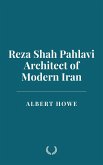Following Reza Shah's abdication, the book traces the rise of his son, Mohammad Reza Pahlavi, and the continuation of his father's vision of modernization and centralization, alongside growing opposition from both religious and secular factions. The narrative unfolds through the tensions that marked the Pahlavi dynasty's rule, from economic inequality and authoritarianism to the increasing dissatisfaction of various social groups. The eventual decline of the Pahlavi regime is contextualized within the larger geopolitical dynamics of World War II and the Cold War, with a focus on the Islamic Revolution of 1979 and the political rise of Ayatollah Khomeini.
Through detailed analysis of primary sources, historical events, and key ideological movements, the book provides a comprehensive account of the Pahlavi era's legacy, the rise of political Islam, and the establishment of the Islamic Republic. It offers insight into the forces that both shaped and opposed the revolution, and how the Islamic Republic's subsequent political evolution continues to influence Iran's governance and global relations today. Ultimately, the book reflects on the contradictions of Reza Shah's modernizing ambitions, the complexities of the Islamic Republic's foundations, and the ongoing political and cultural struggles that have defined modern Iran.
Dieser Download kann aus rechtlichen Gründen nur mit Rechnungsadresse in A, B, CY, CZ, D, DK, EW, E, FIN, F, GR, H, IRL, I, LT, L, LR, M, NL, PL, P, R, S, SLO, SK ausgeliefert werden.









